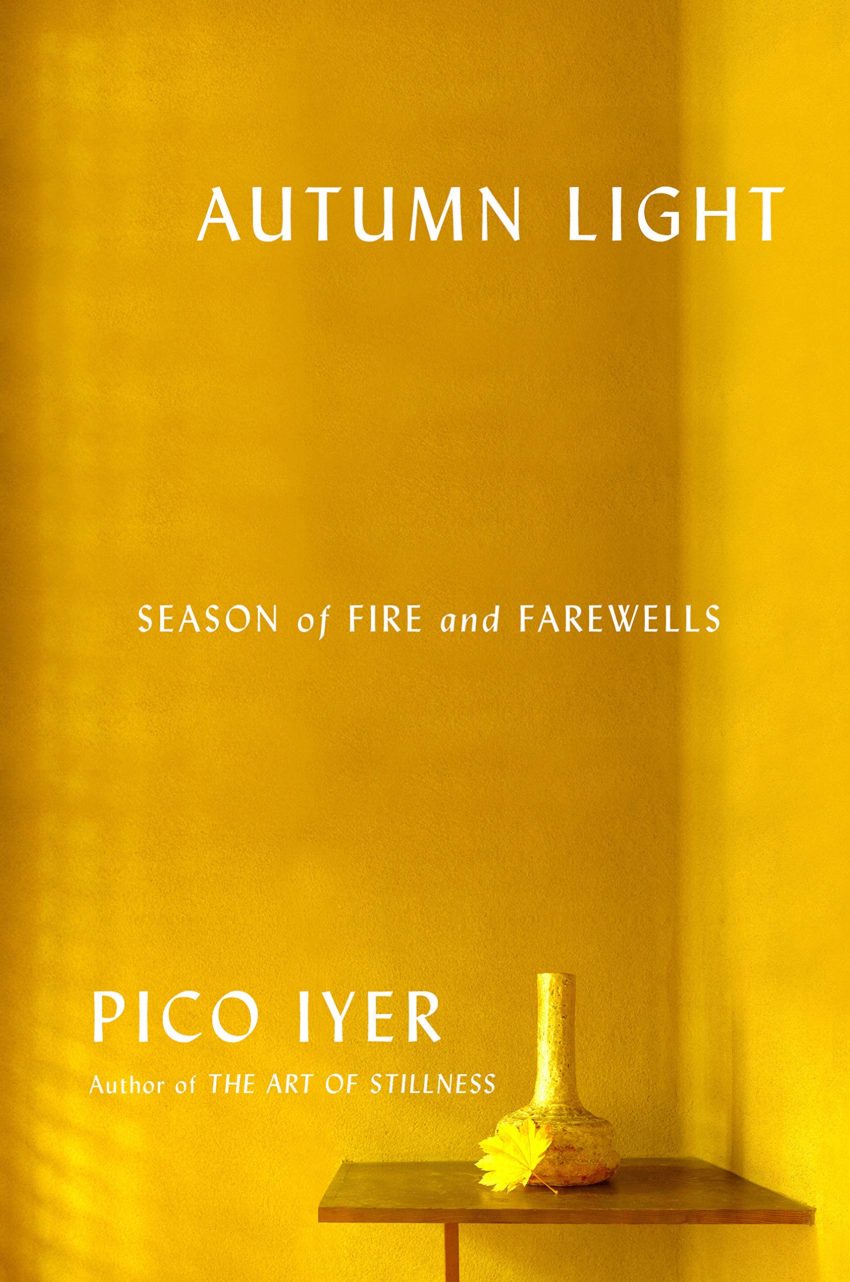Pico Iyer is a true world traveler. Born of Indian parents, childhood in Britain and USA, now lives in Kyoto, Japan with his wife.
I have read most of his books, some more than once. If you want to start with his writing, I recommend “Sun After Dark”. Or consider starting with reading his essays.
He has a few TED talks as well. This one “Where is Home” is my favorite.
I just finished reading his latest book – Autumn Light. It talks about the autumn of life from a Japanese perspective. Here are some excerpts:
- Cherry blossoms, pretty and frothy as schoolgirls’ giggles, are the face the country likes to present to the world, all pink and white eroticism; but it’s the reddening of the maple leaves under a blaze of ceramic-blue skies that is the place’s secret heart.
- We cherish things, Japan has always known, precisely because they cannot last; it’s their frailty that adds sweetness to their beauty.
- Autumn poses the question we all have to live with: How to hold on to the things we love even though we know that we and they are dying. How to see the world as it is, yet find light within that truth.
- “To learn something new”—a wise friend from New York sent me the sentence from John Burroughs last week “take the path that you took yesterday.”
- “We all start going back, don’t you think?” I say. As the years behind us grow so much richer than the years ahead.
- “I suppose everyone tries to ignore the passing of time,” the very English poet Philip Larkin told The Paris Review in 1982. “Some people by doing a lot, being in California one year and Japan the next; or there’s my way— making every day and every year exactly the same. Probably neither works.”
- I stop for breath—this never happened twenty-six years ago—and pretend I’m halting for the view.
- We’re so convinced we’re moving forwards, when all I seem to do is go round and round with the seasons,certainly no wiser, and often only more sure of how much I cannot know.
- In my twenties, watching the leaves scatter around Boston, I’d thought that autumn was the season that taught us how to die; only now do I see that in truth perhaps it’s dispensing the much harder challenge of learning how to watch everyone you care for die. Death can be hardest on the living.
- His conversation with Dalai Lama: “My parents are getting old,” she said, “and I don’t know what to do exactly.” “Spend time with them,” he said. “Don’t spend it here!” In his way of thinking, looking closely at reality is the only thing that matters, not all the ways we make embroidered designs around it.
- Suffering is the central fact of life, from his Buddhist viewpoint; it’s what we do with it that defines our lives.
- “Everything must burn,” wrote my secret companion Thomas Merton, as he walked around his silent monastery in the dark, on fire watch. “Everything must burn, my monks,” the Buddha said in his “Fire Sermon”; life itself is a burning house, and soon that body you’re holding will be bones, that face that so moves you a grinning skull.
- What do we have to hold on to? Only the certainty that nothing will go according to design; our hopes are newly built wooden houses, sturdy until someone drops a cigarette or match.
- The seasons turn and turn, and we seem to go nowhere at all.
- He might be a teenager on a first date, I think—so ready to find excitement from the same seasonal blaze he must have witnessed more than seventy times by now.
- Why, I wonder, must I so often be running against time, when I know that the only way to be happy is to make my peace with the autumn, and see it as a friend?
- “Because, of course, it’s not how many days you have that matters. Only what you do with them.”
- “Though the years are sad,” I read this morning on our terrace in the sun, on the last page of Edith Wharton’s autobiography, “the days have a way of being jubilant.”
- Now I see it’s in the spaces where nothing is happening that one has to make a life.
- My first thanks must go to my lifelong adversary and boss, Time, for allowing me, over sixteen years, to sift through an hourly mounting pile of impressions and experiences and feelings, and for showing me, finally, how many of them were useless, or temporary at least.
